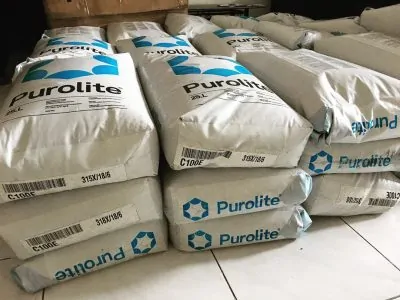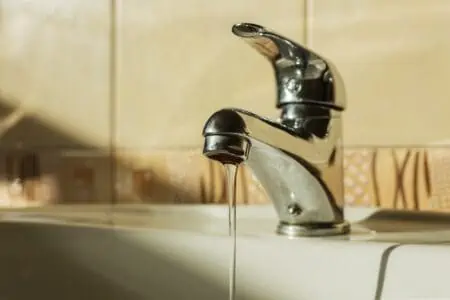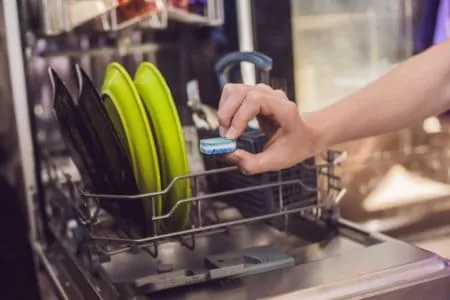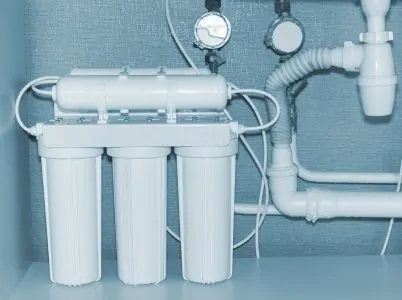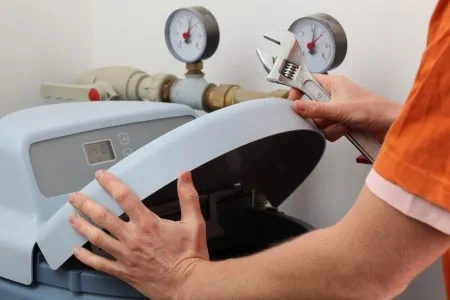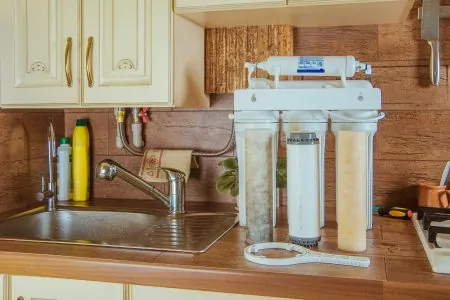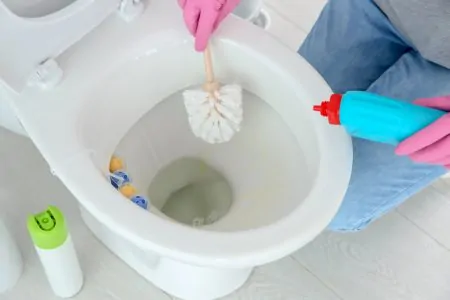If you have owned a water softener for several years and noticed that it is no longer working as effectively as it used to, it might be time to replace your unit’s resin. A common symptom is your system needing more frequent regeneration and salt replacement.
Water softener resin should last about a decade but it will eventually stop capturing the minerals that make your water hard. When it becomes ineffective, it needs to be replaced, which you should be able to do without professional assistance.
To help you find the best water softener resin for your unit, we have provided reviews of what we consider the top products available today. We chose these resins based on their materials, effectiveness, and price.
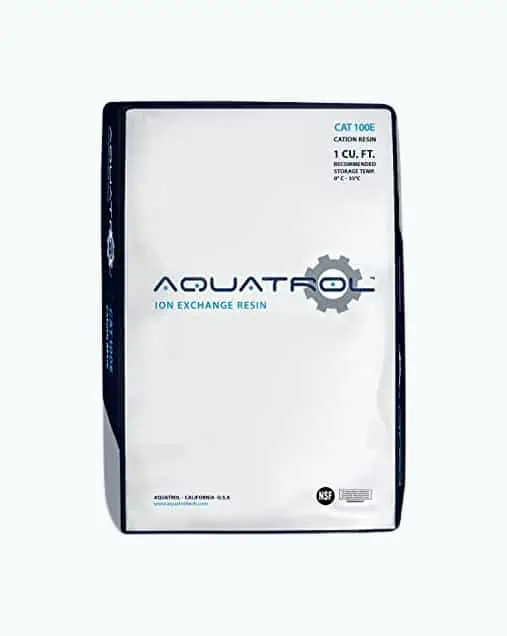
- 8% crosslink
- FDA approved
- Easy pour packaging
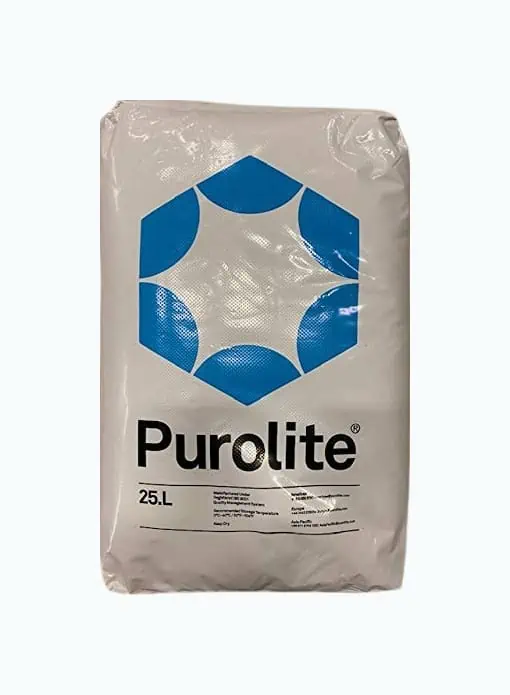
- 1 cubic foot bag
- Strong acid cation
- Made in the USA
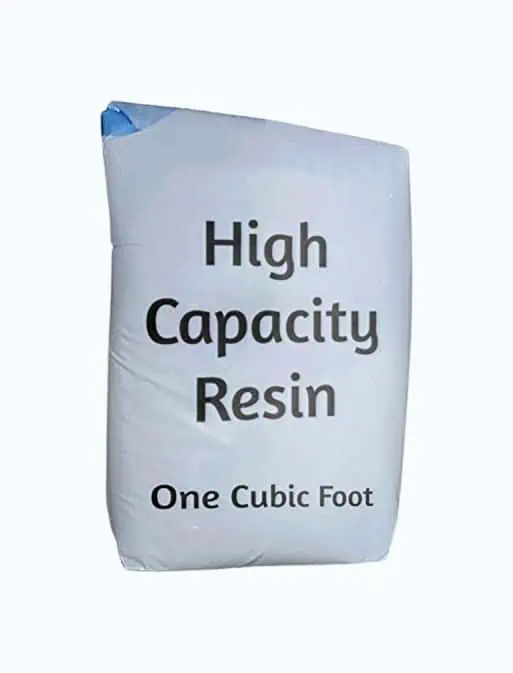
- WQA approved
- 8% crosslink resin
- Strong acid cation
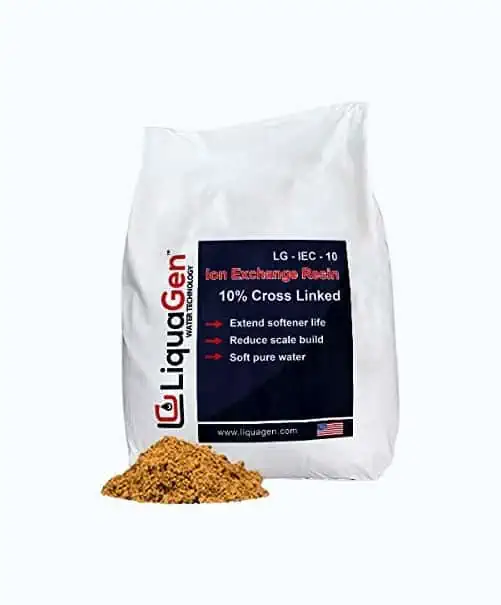
- Strong resin with 10% crosslink
- Free funnel included
- Large 2 cubic feet size

- Great value for money at 44 pounds
- High-quality resin
- Unconditional guarantee
Review Methodology: At Sensible Digs, we understand the significance of providing accurate, hands-on analysis and trustworthy assessments. Our expertise in evaluating water softener resins is based on rigorous tests, data-driven research, and our substantial experience in the field. We compare different products, measure their performance, and rank them based on key decision-making factors such as efficiency, longevity, and cost-effectiveness. We delve into the design choices of each resin, focusing on their effects on water quality and user experience. Our findings and reviews are supported by first-hand evidence and solid facts, ensuring you make an informed choice. We go beyond the standard to track and highlight what sets a product apart from its competitors. Trust us to help you find the best water softener resin for your needs.
The Best Water Softener Resins of 2024
There is a strong possibility that you have never purchased water softener resin before, so the prospect can seem a little daunting. To make your search as straightforward as possible, we have read numerous user reviews and expert opinions to bring you our top five water softener resins available today.
Aquatrol Water Softener Resin
Best Overall Water Softener Resin
Aquatrol offers a premium quality water softener resin replacement made from polystyrene and DVB beads with an 8% crosslink.
This resin is FDA-approved for use in treating food for human consumption, which means it won’t affect your drinking water after it has undergone the softening process.
Aquatrol claims this resin is suitable for any residential water softener. However, it is always best to check your manufacturer’s specifications for your softener system to make sure.
Pros
- 8% crosslink
- FDA-approved
- Easy pour packaging
Cons
- Might not be suitable for commercial systems
Product Specs
| Quantity | 1 cubic foot |
| Weight | 50 pounds |
| Type of Resin | Strong acid cation sodium exchange |
| Crosslink | 8% |
| Materials | Polystyrene divinylbenzene (DVB) |
Our Ratings
User Experience
Purolite C100E Cationic Water Softener Resin
Best USA-made Water Softener Resin
Purolite’s C100E Cationic water resin has 8% crosslink and is manufactured in the United States. The beads are polystyrene gel with DVB, making this resin a great choice for domestic water softener systems.
The strong acid cations are sodium-based to help remove hard minerals and soften your water. This should mean less buildup in your plumbing and appliances.
This resin is also suitable for commercial systems as Purolite states its primary application is use in industrial water softeners.
Pros
- 1 cubic foot bag
- Strong acid cation
- Made in the United States
Cons
- Might need to buy multiple bags for large systems
Product Specs
| Quantity | 1 cubic foot |
| Weight | 50 pounds |
| Type of Resin | Strong acid cation sodium exchange |
| Crosslink | Not specified |
| Materials | Polystyrene gel, divinylbenzene |
Our Ratings
Personal Perspective
AFWFilters SOFRES1 Water Softener Resin
Best Certified Water Softener Resin
Although this AFWFilters resin is produced overseas in India, it is approved for use in the United States, having been tested by the Water Quality Association (WQA). The WQA sets the standards that must be adhered to for products created for use with water softeners and other water-related materials (1).
The 8% polystyrene and DVB beads are designed to remove calcium and magnesium from your water — this is a strong acid sodium cation blend.
AFWFilters advises that although this product is sold as 1 cubic foot, it might be delivered in multiple smaller bags with a combined volume of 1 cubic foot.
One negative is that some people notice a strange taste in their water after using this resin. Some describe it as having a plastic flavor.
Pros
- WQA approved
- 8% crosslink resin
- Strong acid cation
Cons
- Might give your water a plastic taste
Product Specs
| Quantity | 1 cubic foot |
| Weight | 50 pounds |
| Type of Resin | Strong acid cation sodium exchange |
| Crosslink | 8% |
| Materials | Styrene divinylbenzene copolymer |
Our Ratings
Community Feedback
Liquagen Water Softener Resin with Funnel
Highest Crosslink Water Softener Resin
Liquagen’s food-grade water softener resin has a 10% crosslink. These stronger beads should last longer, so you will save money by buying them less frequently (2).
This higher crosslink can be particularly beneficial if your water supply contains a lot of chlorine or iron, such as when it is supplied by a well. These can quickly wear down your resin beads, so the stronger the better (3).
You get 2 cubic feet of resin and a free funnel when you buy this product. The funnel is very useful when refilling your tank, as you might otherwise have difficulty pouring the beads into it.
Pros
- Strong resin with 10% crosslink
- Free funnel provided
- Large 2 cubic feet bag
Cons
- The funnel is not packaged with the resin
Product Specs
| Quantity | 2 cubic feet |
| Weight | 52 pounds |
| Type of Resin | Strong acid cation sodium exchange |
| Crosslink | 10% |
| Materials | Gel polystyrene |
Our Ratings
First-Hand Impression
Water2buy IonX Resin Ion-Exchange Resin for Water Softeners
Best Guarantee Water Softener Resin
This ion-exchange resin from Water2buy is compatible with all water softener brands. It is a premium-grade resin which replaces calcium and magnesium with sodium ions. This makes it suitable for both home and commercial water softener systems.
As a sign of Water2buy’s confidence in this product, the company provides an unconditional 10 years guarantee for the resin’s life.
This product is a 44-pound bag, so you might need to order multiple bags if you have a large plumbing system.
Pros
- Great value for money at 44 pounds
- High-quality resin
- Unconditional guarantee
Cons
- Might need to order multiple bags
Product Specs
| Quantity | Not specified |
| Weight | 44 pounds |
| Type of Resin | Sodium exchange |
| Crosslink | Not specified |
| Materials | Polystyrene resin |
Our Ratings
| Product | Best | Quantity | Weight | Type of Resin | Crosslink | Materials |
|---|---|---|---|---|---|---|
| Aquatrol Water Softener Resin | Overall | 1 cu ft | 50 lbs | Strong acid cation sodium exchange | 8% | Polystyrene divinylbenzene (DVB) |
| Purolite C100E Cationic Resin | USA-made Resin | 1 cu ft | 50 lbs | Strong acid cation sodium exchange | N/A | Polystyrene gel, divinylbenzene |
| AFWFilters SOFRES1 Water Resin | Certified Resin | 1 cu ft | 50 lbs | Strong acid cation sodium exchange | 8% | Styrene divinylbenzene copolymer |
| Liquagen Ion Exchange Resin | Crosslink Resin | 1.5 cu ft | 75 lbs | Strong acid cation sodium exchange | 10% | Gel polystyrene |
| Water2buy IonX Ion Exchange Resin | Guarantee | N/A | 44 lbs | Sodium exchange | N/A | Polystyrene resin |
Choosing the Best Water Softener Resin
Not all water softener resin types are created equal and some products will be more suitable for your water softener than others. There are a few key points to keep in mind when looking for the best resin for water softeners:
How Does a Water Softener Work?
Water softeners remove hard minerals, such as calcium and magnesium, from your water, replacing them with sodium, which is a softening mineral. This process is called ionization and it is the most popular method of softening used today. Here are the basic steps:
- Resin beads: The hard water ions are attracted to, and become attached to, the resin beads.
- Sodium released: Sodium ions are released to maintain balance in the water. The resin is the catalyst that allows this ion exchange to take place — it acts as a cation (positively charged) to attract oppositely charged negative ions.
- Regenerate: In time, the beads will become saturated with hard water minerals. When this happens, the system will need to be regenerated (or cleansed). Water, which is rich in sodium, is flushed from the brine tank through the softener tank. The calcium and magnesium ions are released back into the water and washed away, while the resin is recharged with sodium ions.
- Repeat: Your system will then be ready to continue softening your water (7).
When Does My Water Softener Resin Need Replacing?
Water softener resin generally lasts about 10 years (8). This can vary depending on the quality of your municipal water supply and particularly if your water comes from a well.
Some municipal water supplies have high chlorine content, which will shorten the lifespan of your resin. Water from a well often contains large amounts of iron or sometimes sand particles, which will also degrade resin more quickly (9).
Usually, the first and most obvious sign that resin might need replacing is that the water is no longer soft. For example, you could notice hard water stains on glasses, or your soap might not clean as effectively as it previously did.
If you have cleaned your brine tank, replaced the salt, and regenerated the system, but your water remains hard, it could be due to your resin having been exhausted.
Some causes of ineffective resin include (10):
1. Hydraulic Shock (Water Hammer)
A sudden interruption to the high pressure of your water flow can cause the resin beads to strike the side of the softener tank. This could leave beads broken or cracked, ruining their effectiveness.
2. Chlorine
Chlorine can cause the water softener resin beads to lose strength, which results in them swelling to a larger size. As there is limited space in the tank for them, this can cause the beads to crack or break entirely.
3. Osmotic Shock
The beads grow and shrink as they draw in minerals and then release them. In time, this can lead to cracks or breaks.
4. Reduced Quantities
As the beads are slowly cracked or broken, the volume in the tank will gradually decrease. Pieces can fall off and be washed away when the tank is regenerated. This means that, even if some beads are still effective, you might not have enough to process your water, so it could remain hard.
5. Iron Buildup
As your tank regenerates, iron in your water can react with oxygen, leaving behind iron oxide. The salt used to clean the resin will be unable to remove this, so it will accumulate on the beads. This will reduce the size of the area available for ion exchange, thus impacting the performance of your system (11).
